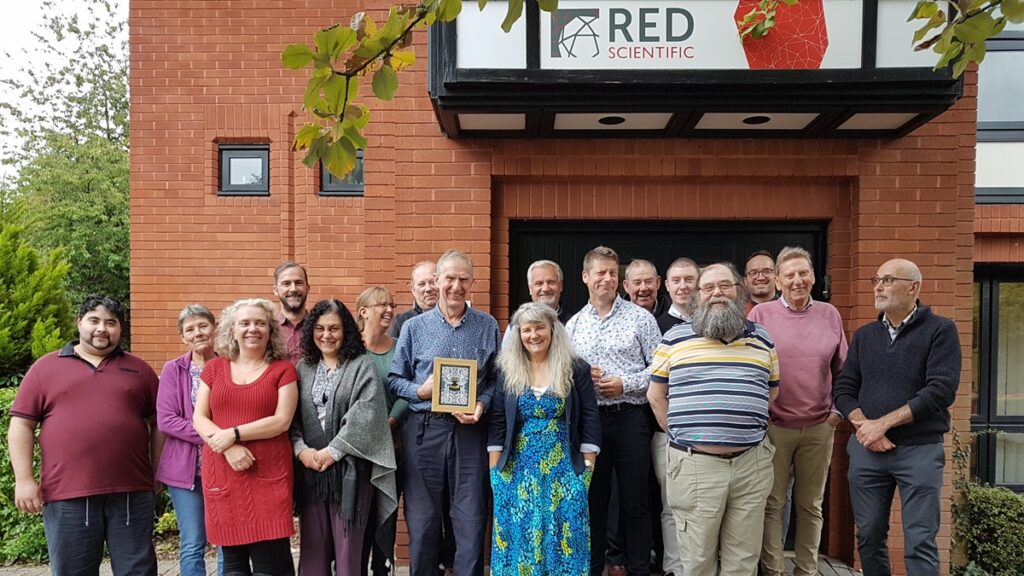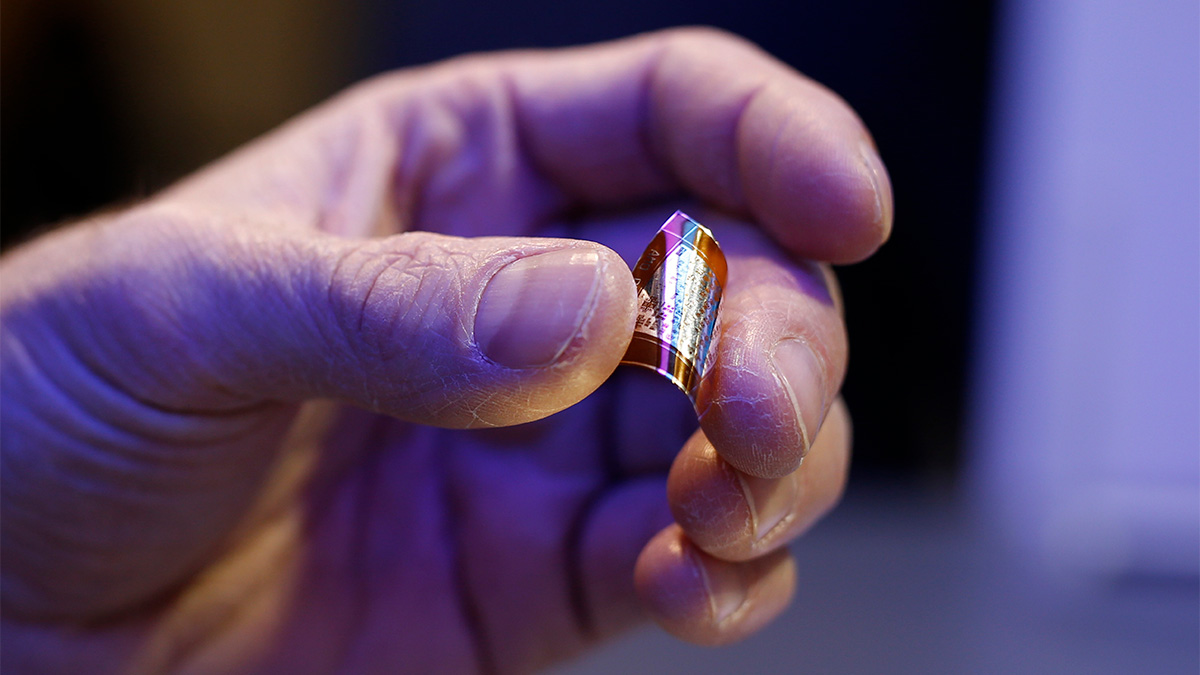Growth Engines: Leverage historic liabilities to build a future asset
An early interest in diving led to Yvonne Whiteley moving into data and eventually buying RED Scientific, which combines scientific research, technical support and engineering

A 13-year-old Yvonne Whiteley, inspired by Jacques Cousteau, wanted to learn how to dive. She was living on a military base her father transferred to with his wife and five children.
In her vastly oversized men’s wetsuit, she found solace, a mathematics professor and a deep interest in data. These would eventually lead her to build RED Scientific, a digital engineering services company in Alton, Hampshire.
Priming an interest in data
Upon arriving at RAF Brize Norton, Whiteley, now 15, introduced herself to the base divemaster, sergeant Jon Mays. Relieved that he had found someone to teach a pesky professor insistent on learning how to dive despite his 70 years of age, he welcomed Whiteley into the dive school.
Forever curious, John Petrie, professor of mathematics at Oxford University, wanted to learn how to dive. Whiteley was to be his teacher – and a close friendship developed. It deepened when Petrie and his wife took Whiteley into their home. There, they discovered a bright, mathematically inclined mind and nurtured it.
This coincided with an increase in North Sea oil exploration. Divers were needed across the oil rigs but were hard to find. Whiteley started her first business building a registrar of divers and placing them with oil firms.
It felt like starting again. And I had to hold onto my team if I wanted to do that
Yvonne Whiteley, MD, Red Scientific
It was a good business. Whiteley cared deeply for her divers, seeking the most favourable conditions in a rough and ready industry. Her care for their well-being grew as she noticed their sojourns on the oil rigs yielded horrible health consequences.
Shore leave had them prostrate with headaches and painful knee, shoulder and elbow joints. “They drink like fish,” laughed the rig’s medical officers. And they did. It was tedious work between dives.
An evening meal with Petrie had them undertake research to better understand these health problems. Across seven rigs, a data collection programme began.
Some 18 months later, the research showed evidence that current dive tables were the cause of the divers’ ailments and needed amending to prevent the embolisms plaguing the rig divers. That led to her acquiring RED Scientific, the defence division of a software company. Like many science-driven businesses, science mattered more despite it being the people that matter most.
Overcoming the challenges of Covid
The defence industry responds better to men than women. “Because our primary contracts and history lay in that industry, I had to work around it,” says Whiteley. She adopted a strategy to recruit former military men to overcome her imposed limitations as a female.
This led to deepening Ministry of Defence work and the requirement for extensive accreditations and certificates that further deepened the value of RED as a service provider. Every project drew levels of research rigour that delivered standards of excellence that spread across her client base. RED grew. The fledgling business began to turn a profit.
At the same time, Whiteley’s confidence increased and the fledgling business leader began to lead with deliberate intent. It drove access to extensive European defence and aerospace research contracts. The multidisciplinary nature of research projects led to Whiteley building a vast network that exceeds 20 universities, 600 SMEs and independent specialist consultants. Then Brexit came, vapourising 40% of RED’s revenues as Europe withdrew and a very exciting USA acquirer faded back.
Re-igniting the business
“It felt like starting again,” says Whiteley. “And I had to hold onto my team if I wanted to do that. But as I turned to customers in the UK, Covid came and the government froze all contracts not yet committed. We had seven of them. They said they’d recommence in six months and told me to keep my team. Six months became 18, eating all my saved capital.”
However, she believes Covid delivered a gift: the need to localise and her deep network meant she had the right conversations across government that influenced a changed procurement policy. The government’s infrastructure and social engineering programmes now require bidding consortia to allocate up to 25 per cent of the project’s value to SME suppliers.
RED was well positioned with its reputation in research earned across its university affiliations and project delivery through its extensive network. It won and secured RED’s role as SME champion and a seat on the consortia steering committee on several significant projects.
Adding to this win, Whiteley’s data-led programming, nurtured by Petrie, saw her influence RFPs of new government projects with a data-first engineering design requirement. “It is an easy sell,” she continues. “If you know that critical systems and components on everything, from big machinery like tanks and helicopters to smaller tools such as antennas and radios, allow for predictive maintenance rather than a break-then-fix response, it wins business, battles and the future.”
Looking to the future
As the world becomes more unstable, digital-first engineering design across materials, components and systems is likely to win the future. It has uses in ramping up low productivity levels when replacing crumbling infrastructure, guarding democracy against cyber threats and designing defensive algorithms against drone swarms that have taken place in Ukraine and the Middle East.
As these shifts turn warning lights red, RED Scientific will likely be at the frontline of research supporting decision-making in defence, industry and central government agencies. A well-positioned business working with the reality of our world faces a resilient and robust future, all because it is under the leadership of a woman who used the limitations imposed upon by her past to fortify her future.
Growth and Value Perspectives
- Rack and stack assets that secure your business’s value: In a project-based services business, work selection needs to go beyond profit and consider why your team, likely your biggest asset, work with you. It must be enjoyable and exciting, while offering ongoing learning, and intellectual and creative challenges. Add deep and narrow projects to build brand reputation and lock in long-term revenues to create stability and certainty of tenure. Add accreditations, accolades, casework and references, relevant industry relationships, and frameworks.
- Lead or follow a trend: Appreciating the reality of your environment and investing your time and attention to the things you can control will keep you forward-focused and put you ahead of the trend. It lets you lead, rather than follow, your industry and its players.
Growth Engines showcases remarkable yet frequently under-recognised business owners who collectively form the basis of our economic engine and whose entrepreneurial fortitude creates a more inclusive and prosperous Britain. It shares their journey, highlighting hard-earned insights and lessons on overcoming challenges and driving business growth.
Its creator, Pavlo Phitidis, is a founder of Aurik, a business scale and growth execution platform for established business owners. He also speaks internationally and authored two books: Sweat, Scale Sell: Build Your Business into an Asset of Value and Reset, Rebuild, Reignite: Turning Crisis into Opportunity



